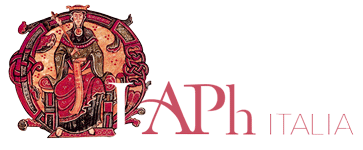
- Questo evento è passato.
Gender and religions. Freedom, identity and limits
17 Marzo 2016 -8:00 - 17:00
We wish to remind the opening of the call for articles for the tenth issue of AG-About Gender, International Journal of Gender Studies, entitled Gender and religions. Freedom, identity and limits, edited by: Orsetta Giolo (Ferrara University) and Laura Scudieri (Genoa University).
The gender perspective, which investigates the constructions and representations of identity, has long been invested into a variety of knowledge areas (from sociology to architecture, from law to philosophy, from medicine to economics), and yet seems even today to play a marginal and at any rate controversial role in studies of the religious field, the latter understood in its most diverse articulations and expressions.
There is no doubt that gender and religious phenomena are bound in a complex relationship, crossed by interrelated problems which can eventually be converting to cash in terms of discourses and practices of a violent kind: just recall the harsh controversies that the identity claims aimed at combining emancipatory vindications and religious dictates have always aroused (the former often being shaped by the latter) or the rough ideological clashes focused around the so called “gender theory” in Europe, especially in Italy and France.
On these topics the secular perspective generally pleads that religion has functioned, and continues to do so, as a device at the service of a hierarchical-patriarchal, heterosexist regime, characterized by male domination. At least from an organizational point of view, it is in fact undeniable that many religions still contain within them a set of structures and rules which are far from respectful of the demands for liberation from “gender cages”, at least to the extent to which they turn out to be composed of an indisputably and thoroughly stereotyped conception of personhood and people’s roles.
On the other hand, scholars have attempted for decades, in diverse religious contexts, to deconstruct and discredit what they believe to be unfounded sexist interpretations of texts and precepts of faith through the adoption of an approach intersectional in all respects, capable of highlighting the polymorphic problems and the discrimination experienced by those who are subjected to different, frequently connected and jointly interacting dimensions of domination.
In particular, the doctrines elaborated by the feminist liberation theology (Protestant, Hebraic, Islamic, Hindu, Buddhist), by the ‘post-liberal’ theology (like that of a Wittgensteinian flavour), and that stemming from the gay, lesbian and queer movements (E. Stuart, R. Goss, M. Althaus-Reid), propose interesting originalist interpretations. They represent hermeneutics that, from the margins of different disciplines and knowledge areas, press for a profound re-reading of the original religious messages. On the one hand, and especially in their essentialist versions (which basically amount to asserting that religions have always been feminist or queer and that patriarchy has either never existed or is long gone), these doctrines are likely to lead to more condemnatory outcomes when compared to more openly progressive or reformist positions.
On the other hand, they offer innovative theoretical models and practical strategies, starting from a conception of religion as a valuable resource for human development in all its different senses. According to this latter perspective, gender-sensitive theologies suggest a series of pathways, in line with what is known as the capability approach, pointing to the enlargement and flourishing of human capacities, as a method for providing maximum expressiveness to the person. The commendable effort in play is that of getting out of the traditional impasse and offering at last due visibility to subjectivity, by freeing it from the rooted socio-cultural constructs that keep it on hold.
We encourage the submission of studies purporting to contribute to these topics by providing deepening reflections on the complex relation between gender perspective and religions. Particularly encouraged are theoretical studies or empirical research investigating, from and interdisciplinary approach, one or more aspects of a theological, anthropological, philosophical, sociological, economical, historical, medical, bio-ethical, political, or legal character, raised in contemporary debates. By way of example, we can mention the following thematic strands as particularly significant:
– gender identity and religious affiliation;
– gender discrimination and religions;
– gender, religions, deviances;
– gender, power and religious institutions;
– economics of religion and gender relations;
– gender, religions, rights;
– gender, religions, biotechnology;
– religions and gender medicine;
– religion and feminine oppression/emancipation;
– religion, body and sexuality;
– gender differences and liberation theology;
– feminist, gay, lesbian and queer theologies;
– “eco-feminist” theology: still between “nature” and “culture”;
– designer religion, new faith practices and gender empowerment;
– multiple discrimination: gender, religion, race and social class;
– gender ideology and religious education;
– gender and “secular spirituality”.
Papers should be between 4000 and 6000 words (excluding bibliography) long. Please follow the instructions gathered in the Author guidelines. Contributions should be accompanied by: a brief abstract (maximum length: 150 words); some keywords (from a minimum of 3 to a maximum of 5).
Abstract and keywords should be both in English. All texts will be transmitted in a format compatible with Windows (.doc or .rtf), following the instructions provided by the Peer Review Process. Please see the Journal’s Authors guidelines.
Contributions must be sent by 15th April 2016.
